Since 2012, Brooklyn-based duo Charming Disaster has claimed a distinctive niche in the American music landscape, combining the gothic humor of Edward Gorey and Tim Burton with traditional murder ballads and cabaret theatricality. Ellia Bisker and Jeff Morris have built their reputation on songs that probe myth, magic, and mortality through two-voice harmonies and what critics have dubbed "haunted vaudeville"—a performance style that transforms venues from Joe's Pub to mausoleums into stages for playfully macabre storytelling.
Over seven full-length albums, including the Marie Curie tribute Our Lady of Radium and the natural history curiosities of Super Natural History, the duo has drawn audiences across the United States and Europe with their ability to make the darkly whimsical feel both intimate and theatrical. Their live shows, which merge ukulele, guitar, and foot percussion with cabaret flair, have shared bills with everyone from the legendary cello-rock ensemble Rasputina to fire eaters and burlesque artists, cementing their place in a musical tradition that refuses to separate entertainment from the examination of life's stranger, darker corners.
Charming Disaster has created an alternate universe on The Double, their latest full-length LP. Continuing their distinct blend of vaudevillian theatrics and moody indie-rock sensibilities, Bisker and Morris embrace themes of time travel, vegetative takeover, and rituals by moonlight while nodding to Bonnie and Clyde and Bram Stoker's Dracula.
The pair has never been one to shy away from exploration within their music and songwriting. Taking just as much influence from music as from film and folklore, the duo channels a diverse range of inspirations into their storytelling. In addition to creating an atmosphere within a record, the live experience with Charming Disaster is equally as unique and refreshing. Their use of tarot cards to craft a setlist, coupled with Bisker's experience as a circus performer, could capture the attention of even the chattiest bar crowd, to which the duo has performed many times.
The Double is all about inviting listeners to share in a story and creating a vibe that is equally intriguing as it is uncomforting. Listeners can picture flickering torches and feel a cold hand wrap around their shoulder amidst the fuzzed-out crescendos and heartbeat-like organ clicks on "Trick of the Light," their Dracula-inspired number.
I spoke with Bisker and Morris about The Double, their use of theatrics and recurring characters in songwriting, and how working in a duo format has offered them the most creative control. This interview has been edited for clarity and length.

Sam Bradley: How did Charming Disaster come together?
Jeff: We met in Brooklyn in a bar in 2012. My band at the time was called Kotorino, and it was a large ensemble with horns, strings, backing vocals, drums, tuba, and all this fun stuff. We were playing at Barbés, which is a great club in Brooklyn.
Ellia: I lived in that neighborhood where Barbés was, and I happened to go by one night when I had nothing else to do. I caught this great band in the back room, Kotorino. I liked the music, and more than that, I liked the songwriting. I, too, had a large band with a similar instrumentation, called Sweet Soubrette. So, I struck up a conversation with the band leader after the show, as you do.
Jeff: I thought, "Oh, great. Here's someone else who is doing something similar to what I’m doing. Maybe we could share a bill." Ellia said, "No." Well, I think it was more like, "We could do that, but what we should do is write songs together."
Ellia: Not a thing I'd ever suggested to anybody else, much less somebody I just met, but I just had this feeling.
The thing about having a large band is that it's impossible to schedule everybody and grow quickly as a band because even if you're a prolific songwriter, getting the band together to practice and get good at those songs is hard. We only rehearsed when a show was coming up soon. Even then, it was often in sectionals because the bassist and drummer were never available at the same time.
Jeff: Yeah, same with me. It seemed as if everyone in my band had their own band, which was flattering to me that they would be in mine. But it was really difficult to get people as excited as I was about promoting the band, playing as many shows as possible, and helping with some of the administrative duties.
Ellia: You want to say yes to things, but then you can’t, because you have to call people and try to make things work. It's hard even to market yourself. If you're flexible with a large band, which you have to be if you want to play gigs, you're like, "Well, we could do this one as a trio or we could do this one with just the strings." It's always a little different, and it's hard to talk about the band in a way that people will understand in order to get them on board.
So when I suggested to Jeff that we write songs together, it was sort of like, "We should write songs together, but you know, if we had a two-person project, we could rehearse as much as we wanted. It's only our schedules to think about."
Jeff: I think my eyes just started watering.
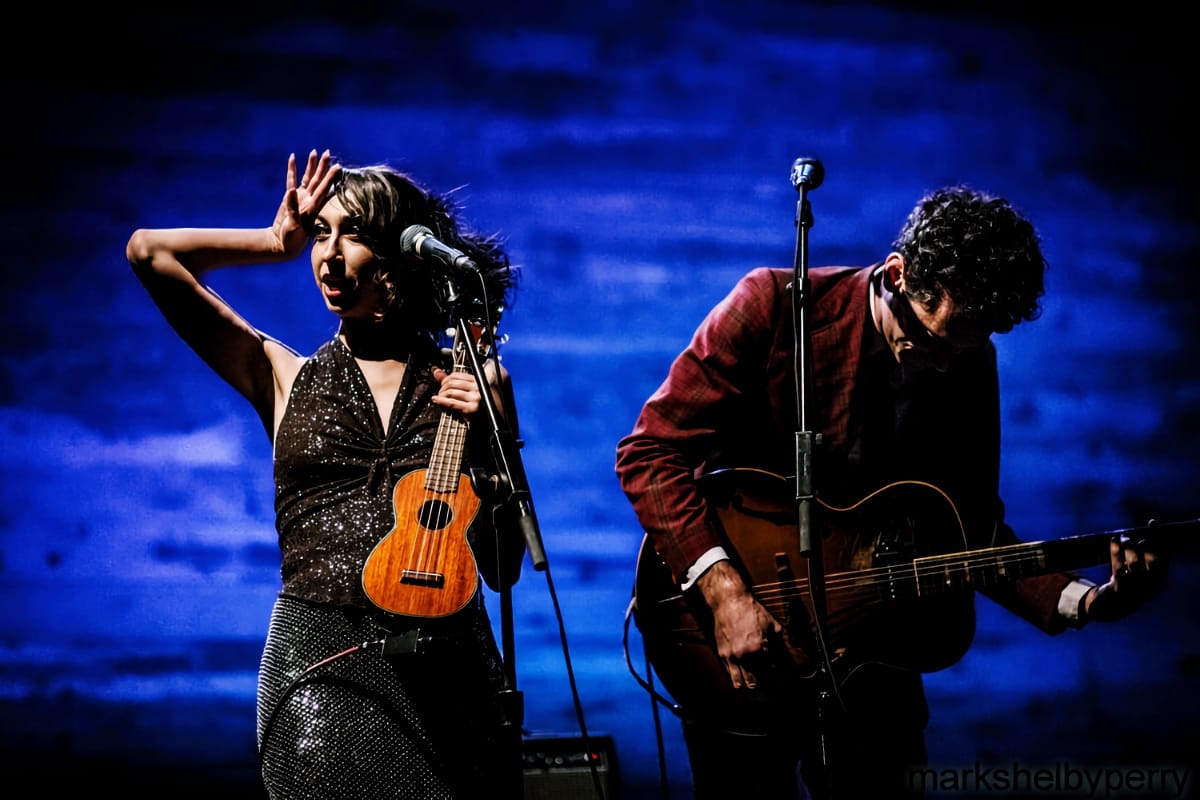
Sam: So it kind of spawned from that idea of having too many cooks in the kitchen?
Jeff: It's funny. It's not like there were too many cooks in the kitchen with my band because I was the only cook. It was trying to wrangle the kitchen to make these orders, you know? I was writing all the music. The same goes for Ellia; she’s writing all the music, the lyrics, and shaping what the project will be. When we started working together, it was great to have someone to share those responsibilities with. I can't even imagine doing it now, fronting a huge band.
Ellia: The other interesting thing is that a large band, in terms of the instrumentation, is lush, and I do sometimes miss that. But aesthetically, it's tough to be in close alignment with a lot of other people at the same time. It's also not like you can afford to pay people a lot of money. People need to feel as if they're doing it because they want to. You need to make people happy and ensure that their creative needs are being met.
Often, my violinist wanted to be playful and goofy, the drummer was more of a jazz guy, and the horns were serious, more in line with new music. Everybody has a somewhat different outlook, which enriches the music, but in terms of having a very specific aesthetic, it always felt a little diffuse to me. With just two people, we can get into this sort of mind meld, where we’re operating as one organism. We can define the things we’re interested in exploring, whether that’s musically or even just how we present ourselves on stage. We can coordinate those things.
Jeff: It's been interesting working with just one other person and having those limitations where there are only two of us, or parameters or guidelines that we have to follow because there are only two of us. That sort of frees us up to experiment and do as much as we can with what we have.
Sam: How did that transition into writing songs for two voices go?
Ellia: I love this question because it has evolved. The first bunch of songs we wrote together, we wrote in a kind of relay style or almost epistolary style, like writing letters to each other.
Jeff: Because we didn't know each other at all, instead of writing out our feelings and emotions, we kind of inhabited characters, and we wanted to tell stories, especially with two points of view.
Ellia: So, the first few songs we wrote, either one of us might start. But you'd start the song, write a verse or maybe a verse and a chorus, and then send it to the other person. Then it was, "Your turn!" To get the reply with the following verse was the most exciting thing. We would talk about what would happen next because we weren't writing personal stories, and it was more storytelling-oriented.
We could be, "Well, all right, now the two characters are in this situation. What should happen next, or what else do we want to say?" We were able to approach the songs with that sort of critical distance in a way. That's been informative as a songwriter, even in the things that I write personally now, to be able to approach a song and think about what happens next, or what's missing, or what else we want to say.
Jeff: Yeah, and it would also be a backstory. We would come up with these characters and their motivations, as well as things that didn’t make it into the song, but were still there, which is kind of cool.
Ellia: Now, more recently, it's changed. Now that we've been writing songs together for over a decade, it's more likely that one of us will start just the littlest suggestion of a thing. Then we'll sit together and think about it, swapping things around on the spot. We feel more liberated tinkering with each other's ideas now. It's been such a long creative partnership.
Sam: I get the impression that when you work together, it’s equally about creating an atmosphere as it is about writing music. What sorts of non-musical things do you draw inspiration from?
Ellia: People ask about musical influences, which is great, but we also read so many books, and the books are just as much of an influence as anything. Lots of books of folklore, fairy tales, noir, science fiction, fantasy, Victorian classics, and graphic novels. We're really into the art of Kelly Link. She's mostly a short story writer who's amazing. We have several songs that are directly inspired by books that we've read, including "Trick of the Light" off of the new record The Double, which was inspired by Bram Stoker's Dracula.
Jeff: Yeah, and besides books, we're interested in nature and the natural world. That gets us very excited, so maybe we'll study plants or something for a little bit and then be like, "Oh yeah, let's try to write a song about poison plants." And film, definitely, but it’s more about the vibe and the feeling of a film, I think, especially the darker, moodier ones. Also, a lot of Wes Anderson.
Ellia: We often think about trying to fill our cup with other people’s work so that their art inspires us. Much of it is musical, but not all of it.
Jeff: There's a little musical theater from Ellia's camp. I was skeptical at first, but now I've begun to appreciate the conventions of musical theater when it comes to two people telling a story. It's great storytelling.
Sam: I'm glad you mentioned musical theater when you did, because the next thing I had written down here was asking about any involvement in theater. Not only as storytellers, but I was also curious if that influences the live performance at all?
Ellia: Not so much theater proper, but vaudeville and circus, and variety arts theater is a big influence. I sort of cut my teeth as a performer in the circus world. We think a lot about the approach to stage performance, the way that the performers interact with the audience, and that sort of presentation.
Sam: Could you talk a little bit about the live experience with Charming Disaster?
Jeff: It's interesting because when we write, we sit side by side, and Ellia's got her uke, and I have my guitar, and we kind of hash out the songs that way. It's very much based on that instrumentation, and vocally, we work at harmonies and arrangements from there. Then we go into the studio, and we get to create what we think of as the Platonic ideal of this song. We can put drums, bass, strings, or piano, and we get to add all these things that are kind of based on the structure that we've created.
Then we go live and we bring that out into the world, and it's just us again with the ukulele, guitar, and foot percussion. I play a suitcase bass drum with my foot, and Ellia plays a high hat with her foot. It's a two-person one-man band. That's how it all morphs from sitting on the couch to going to the studio and then performing it on stage.
Ellia: The foot percussion adds a certain kind of performative virtuosity to our stage performances because we have to do a lot of things at the same time, which I think is fun to watch. What doesn't necessarily come across in our recordings is that we're pretty funny on stage, and it's a more playful performance than people might expect if they're just listening to the recordings. Although if people have caught any of our quarantine live stream shows, they probably have a sense of how we love committing to the bit.
Jeff: Some of the songs can be a bit over the top, too.
Ellia: Yeah, and our stage shows are also quite interactive. Usually, we are working off our oracle deck. We now have the 72-card deck with each card representing one of the songs from our catalog. The way most of our shows work is that audience members select cards from the deck, which tells us what to play. We're also doing a tarot-style card reading as the show progresses, using the cards that people have drawn. So it involves the audience in determining what's going to happen.
That element of chance is really exciting. I mean, we do limit the deck; we're not going out on tour with all 72 cards ready to play. But we'll have maybe a few dozen ready to go. It means every show is a little different. Some of the cards or songs are highly theatrical. For one song, we’re blindfolded every time we play it, and there are a couple of other songs where we’re running around the room. There are some thematic moments where we fight in the songs.
Jeff: We really up the theatrical aspect of it, which I think is kind of cool because a lot of the songs can be kind of moody or brooding or, you know, introspective at least. Then you see us perform, and we're performing them faithfully, but it's not all doom and gloom. It's not all joke songs either. I think it's a great mix of theatrical campiness and serious musicianship. That's the goal.
Sam: I bet that aspect keeps it just as exciting for you as it does for the audience.
Ellia: Yeah, for sure! What always surprises me is how well it works in so many situations. We've presented this show in an intentionally intimate listening room environment, and the audience is very attentive. But we've also done it in dive bars, and it's a great way to make a dive bar shut up and pay attention, especially when Jeff brings the deck into the back where the loud people are and makes one of them pick something. Suddenly, all those people are very intrigued by what's about to happen. We've had more than one dive bar show where people decide to take it upon themselves to sit on the floor right in front of the stage, kindergarten-style, because they want to listen to the stories. I love being able to transform a room like that.
Sam: I enjoyed the "Trick of the Light" music video. How important is that visual element to your creative process?
Jeff: I think I like it more than Ellia does. We have a lot of opinions and ideas about videos when we're working on them. The "Trick of the Light" video was not conceived by us. Zolomon Zelko, our director and sort of mad scientist, came up with the storyboard and concept. He goes to FSU in the film department and conscripted a couple of fellow students to come up to New York and shoot this over a weekend, and they did such a great job. It was cool to work with them. It was Zolomon's vision.
Ellia: Yeah, it was a collaboration and it was an exercise in trust. We had worked with Zolomon before on a documentary that he shot about us a couple of years ago, so we know we shared some aesthetic goals. Collaborations in video are always interesting because you do have to give up some of that creative control and trust other people's vision. That's sort of where the magic happens, but it doesn't always come out the way you think it's going to.
Jeff: Yeah. It could be good magic or bad magic.
Sam: Is giving up creative control something you struggle with after imagining these stories and how you want them presented?
Ellia: Well, we generally keep a pretty tight control over our image and how we present ourselves to the world. When you're shooting a video, even if you think you're in control of it, you’re not always in control because you may be shooting outside or not looking in the right direction for every single shot.
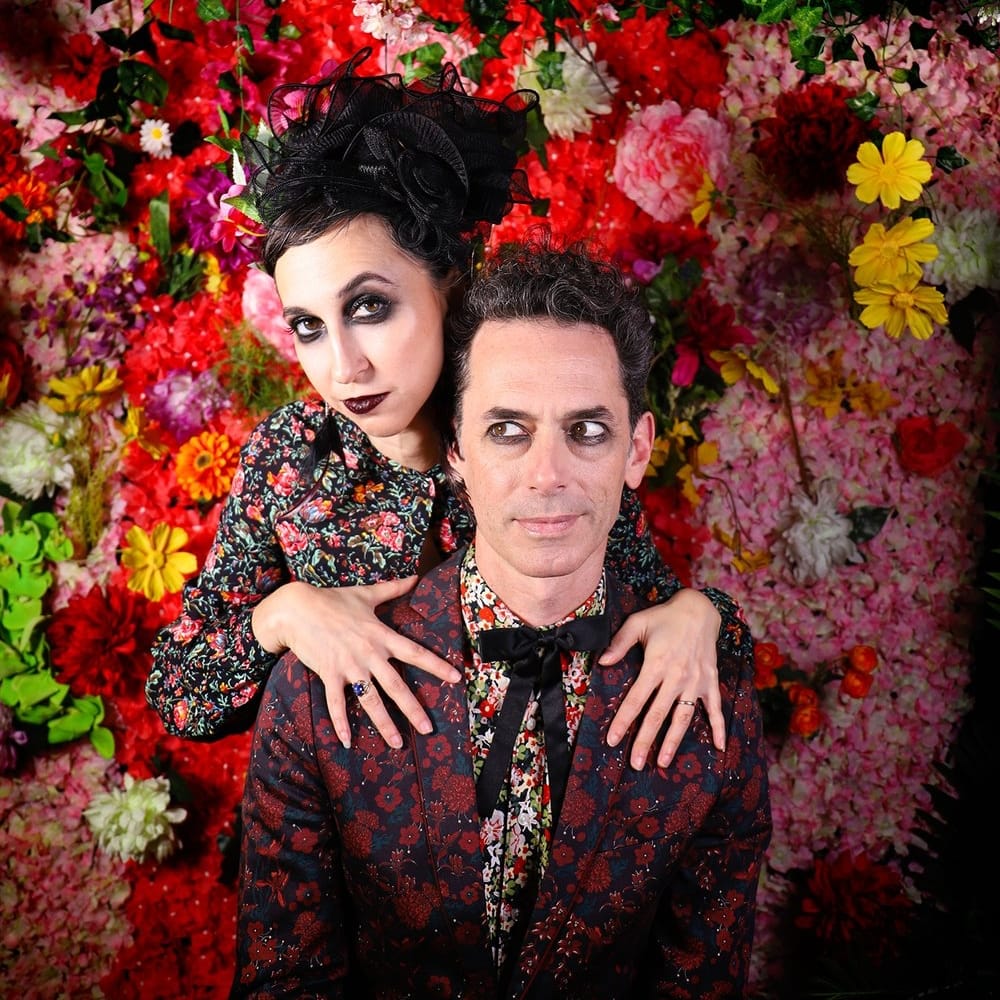
Sam: Coming from working with bigger bands, has instrumentation ever been a point of stress with the duo format? Does it take a lot of effort to determine how to expand the sound? For example, I liked the creepy organ clicking on "Trick of the Light."
Ellia: I don't know that we think of the recording project as a duo project exactly. Usually, when we enter the studio, we assume that most of the songs will have bass and drums on them. Our longtime recording engineer and producing collaborator is a guy named Don Godwin, who we've made all of our records with, to at least some degree. Don happens to be an excellent drummer, bass player, and horn player as well. So we're usually thinking, "What are we going to make Don do?"
We like to record in layers—we have to record in layers because we’re not a four-piece. It often gives us the opportunity to listen to the tracks as they’re being built, and we can ask ourselves what’s missing or what needs to happen next. We'll often come out of the recording session with the basics done, meaning bass, drums, guitar, ukulele, and maybe some scratch vocals. We get to live with that for a little while and listen to it because we can't get back into the studio for a couple of months.
Jeff: We know that the studio has had a great piano in it, and there was a Hammond organ with the Leslie cabinet, which had always been in the back of our minds: "Oh, can we use it?" For "Trick of the Light," it's like, "Oh, it's a Dracula song—of course it's got a creepy organ in it!"
Ellia: If I had a wish list, it would be for a string player who was convenient to the studio, who we knew well, and could fly them in on a moment's notice. Most of the things that we play ourselves are more percussive.
We like being in the studio. I think the thing that's changed the most over the years is that we have a higher comfort level with not knowing than we did at the beginning. There were a couple of songs on The Double where we didn't know how we wanted the recording to sound when we went into the studio. One of those was "Scavengers," a song we wrote five or six years ago. We ended up trying a bunch of things and letting them not work, and then things started working. It started working once we decided to use non-traditional percussion sounds, such as my feet swishing on the floor. We ended up using a lot of breath sounds and some homemade shaker instruments.
Sam: Do you have characters that have been recurring throughout your career? How important is ambiguity to you, or would you say that it's more important to have a fleshed-out lore and setting?
Ellia: I love this because for one of our early shows, we made a printed program for it. Each of the songs had a little blurb, such as "And now our characters are doing X, Y, Z," the concept being that each song featured the same two people in various scenarios. It was always the same two people, but, you know, in some new combination of circumstances. I think that holds true throughout our discography.
Now that we have so many songs, there are some long arcs that you can trace. One of them is that two people have committed some kind of crime, and they are on the run in a car. It's "Gang of Two" on this album.
There's also how we feel about playing a lot of shows. Every couple of albums, there's, "Here's two people traveling to a bunch of shows." Then there's sort of those adventure songs, and "Haunted Lighthouse" kind of falls into that category in this record. There are infinite situations, but you do start to find recurring themes, you know. “Oh well, we're on the run again.”
Sam: Do you see yourselves in the characters more often than not, and how much of that do you feel is subconscious?
Jeff: I don't think there's anything subconscious about it. I think it's all in the fore-consciousness. We often reflect on our own plight and our songs from the same perspective.
Ellia: We try not to separate our imaginary life from our real life; it's all the same.
Sam: Do you consider The Double a concept record?
Ellia: I mean, aren't they all concept records? I mean, to the extent that you could say that they're all concept records, I would say it's a concept record. But it's not a concept record that we set out to make with an intention.
We have one real concept album, Our Lady of Radium, which explores the life and work of Marie Curie. That's an album where we said, "Hey, let's write an album about Marie Curie," then we did lots of research, and we wrote an album of songs. This is more of a concept album in the way that you look back at your dreams and do a dream interpretation. We think a lot about doubles. You know, there are two of us, as counterparts to each other, and then there’s the real world and its reflection.
Jeff: Right, there's on stage and there's normal life. There's the dreamer and the dream. It's all kind of melded on that.
Sam: What do you want people to take away from the record?
Ellia: Message, a secret message in the record. Did we put a secret message in the record?
Jeff: Yeah, you should play it backwards. (laughter)
Ellia: Don't be afraid, don't be afraid of us. But also don't be afraid of the world, the hidden parts of the world.
Jeff: Yeah, there's a lot of wonder out there and in lots of different forms. It's okay to be afraid; you can sit with it and don't have to run away.
Ellia: Sit with it, I think that's what we've done on the record.
Visit Charming Disaster at charmingdisaster.com and follow the duo on Instagram, Facebook, Bluesky, and YouTube. Purchase The Double from Bandcamp or Qobuz and listen on your streaming platform of choice.
Check out more like this:
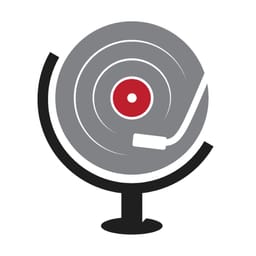 The TonearmMichael Donaldson
The TonearmMichael Donaldson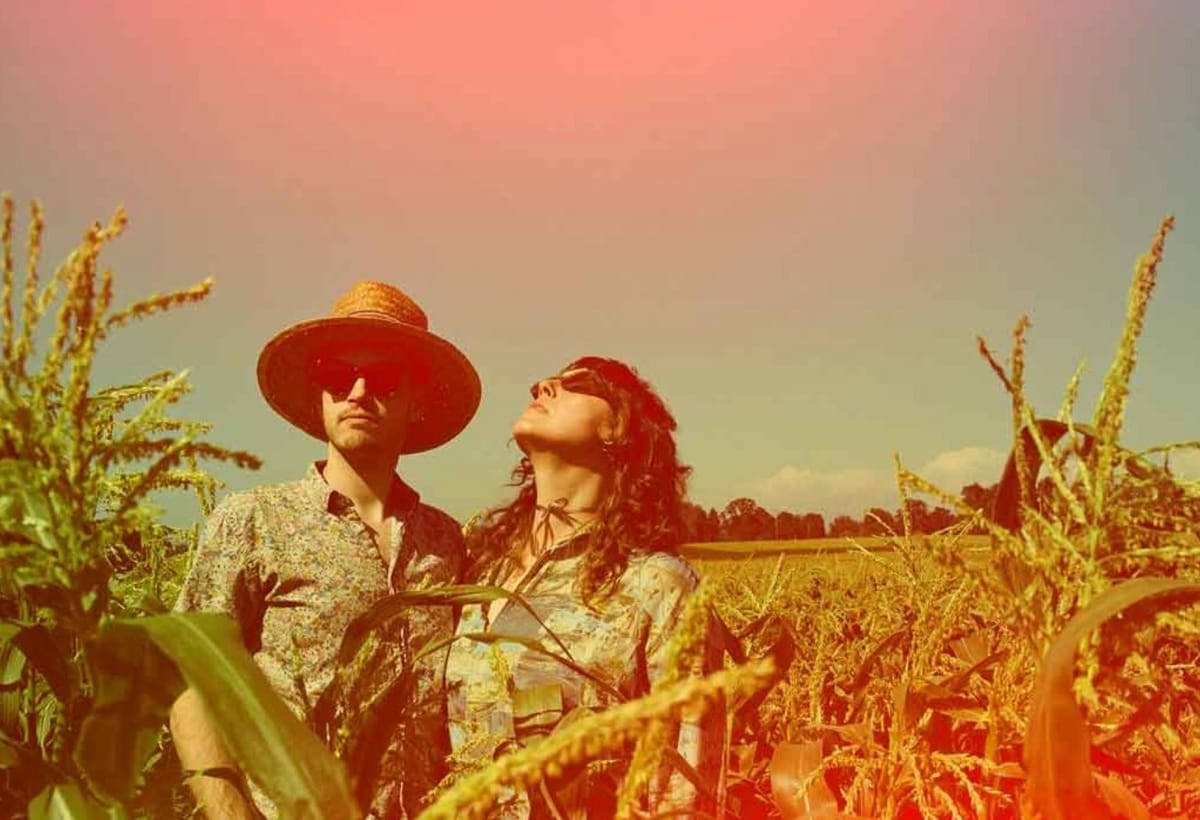
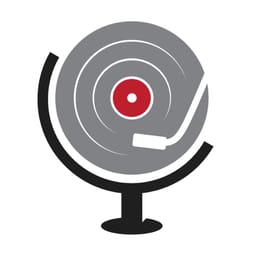 The TonearmSam Bradley
The TonearmSam Bradley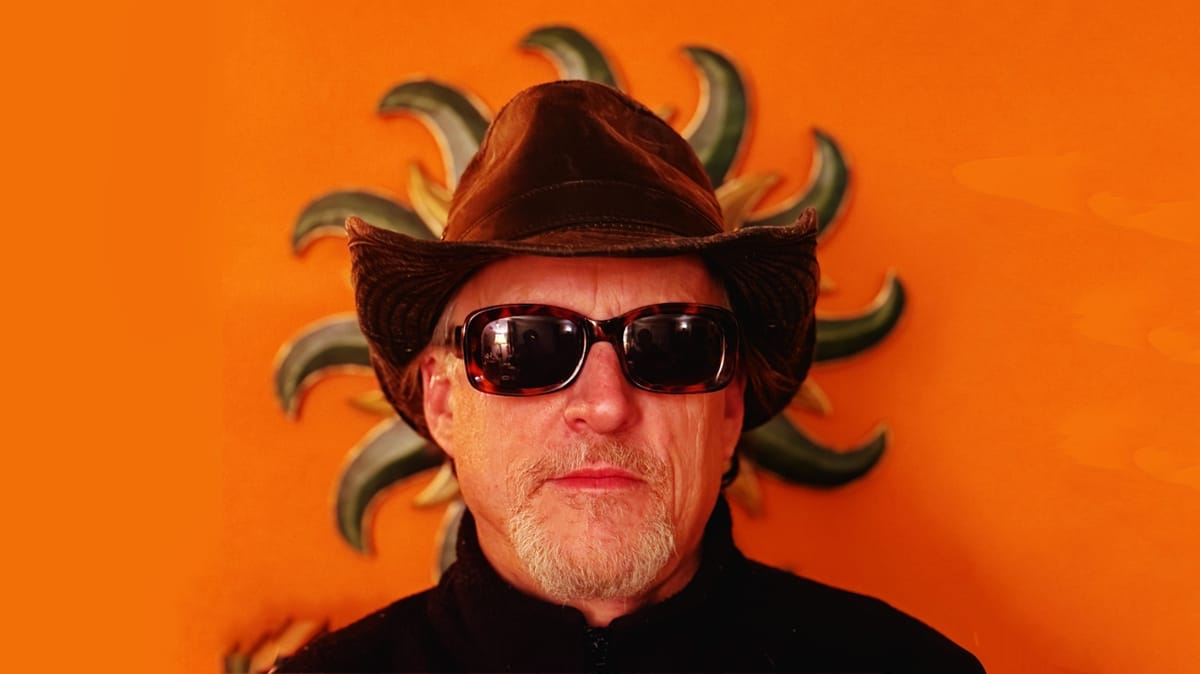


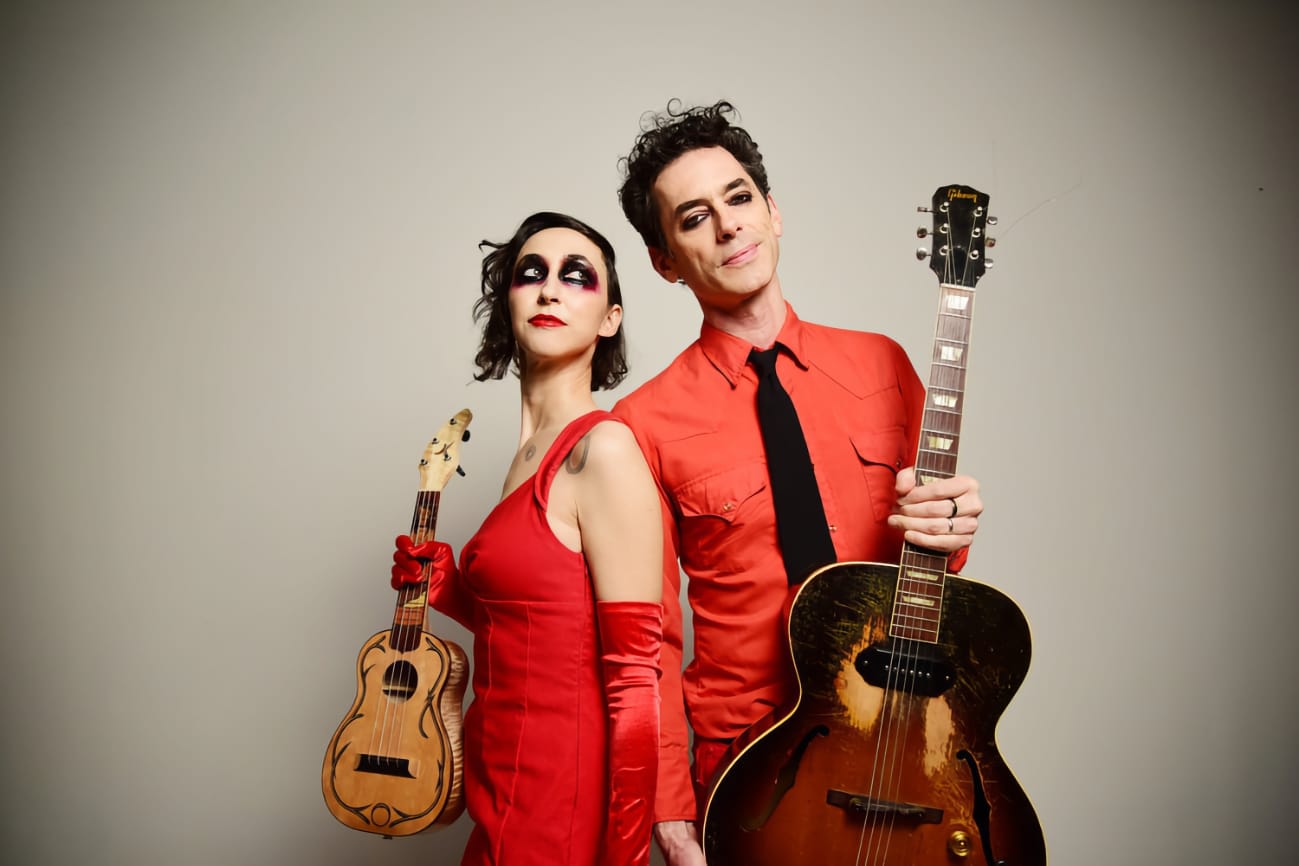
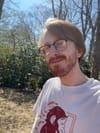
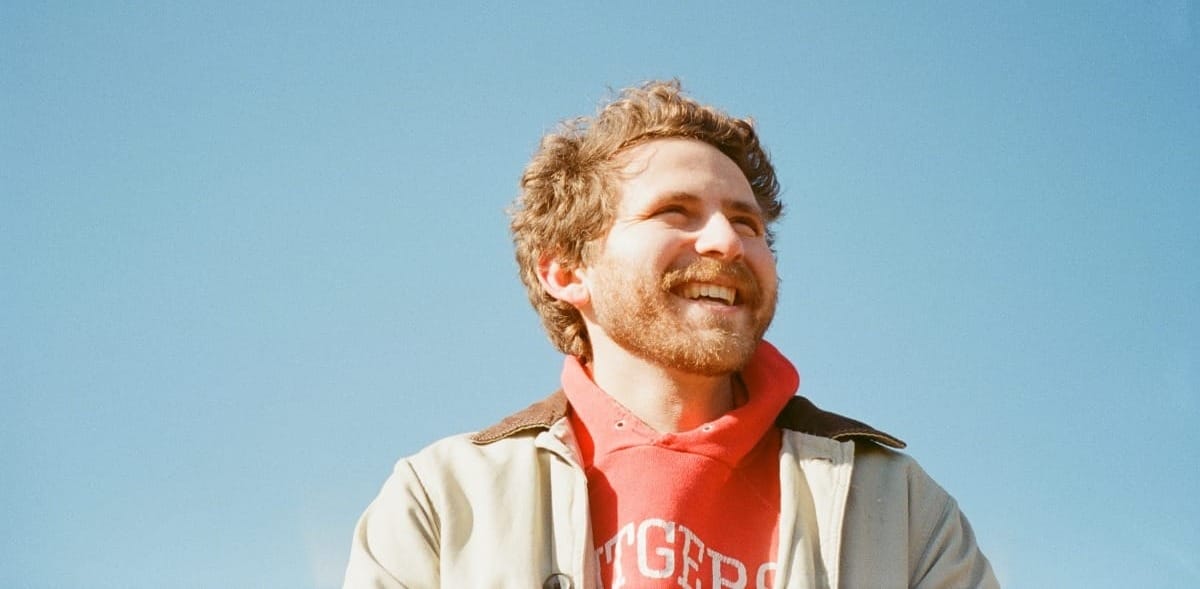
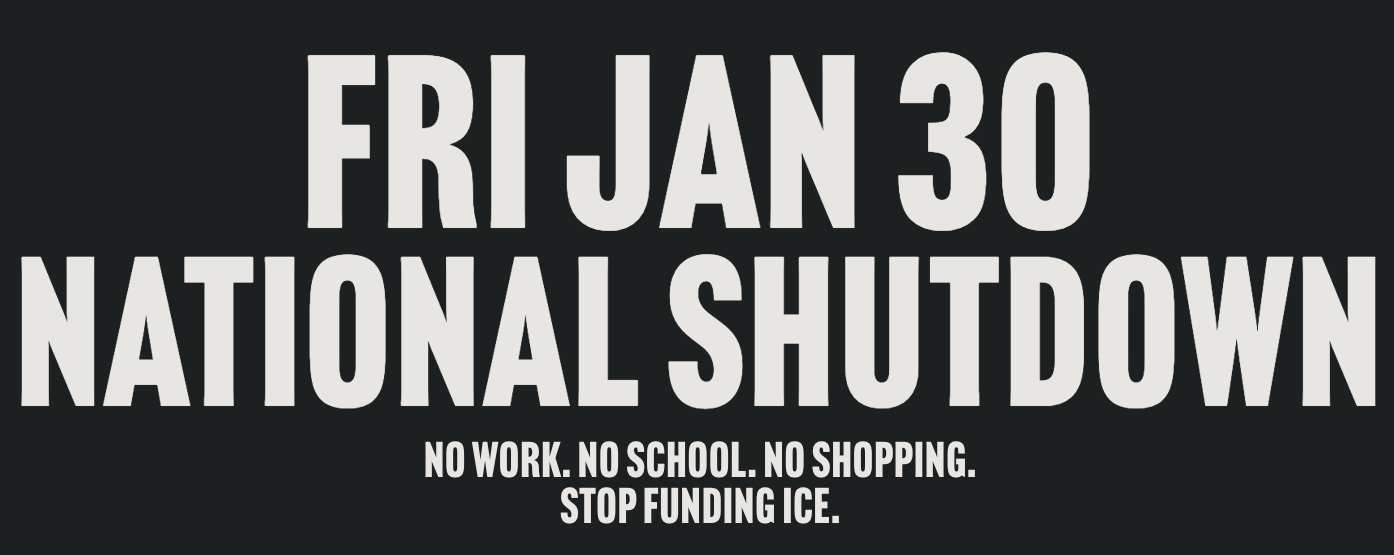
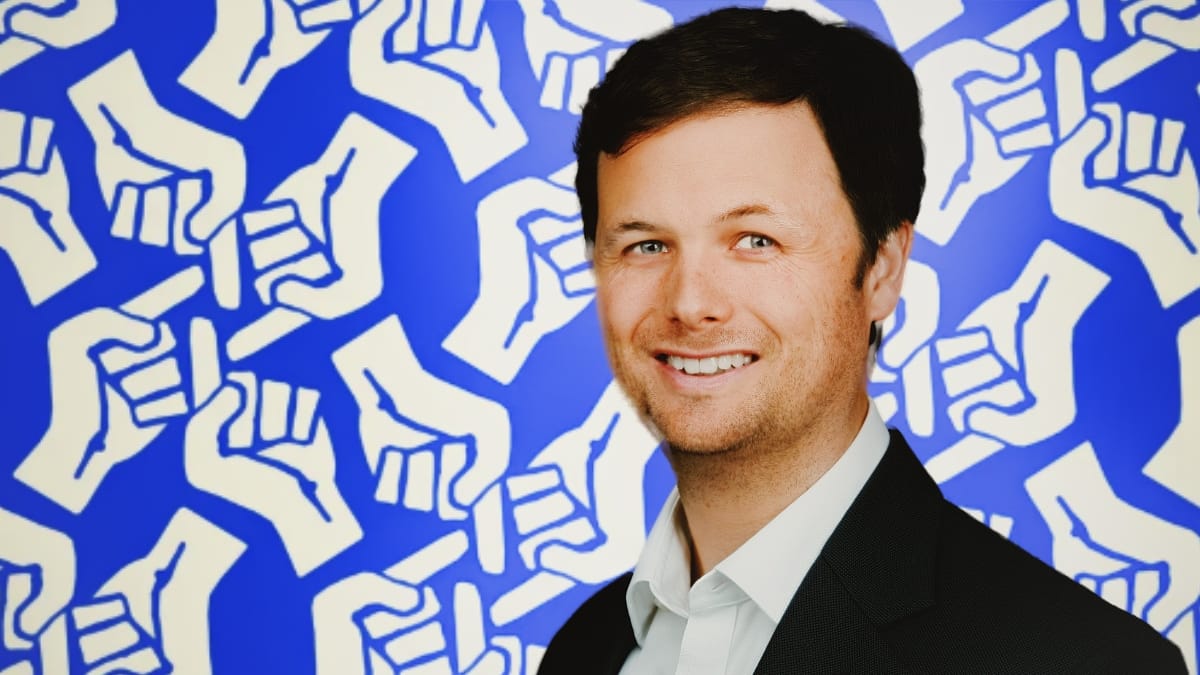
Comments